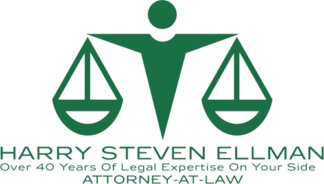Best Restructuring & Insolvency Lawyers in Farmington Hills
Share your needs with us, get contacted by law firms.
Free. Takes 2 min.
List of the best lawyers in Farmington Hills, United States
About Restructuring & Insolvency Law in Farmington Hills, United States
Restructuring and insolvency law deals with helping individuals, businesses, and organizations manage financial distress. In Farmington Hills, Michigan, these laws provide structured processes for dealing with significant debt or insolvency. Legal professionals in this field assist with the reorganization of assets, debt negotiations, bankruptcy proceedings, and the preservation of creditors' and debtors' rights. The primary goal is to provide fair solutions for those unable to pay debts while aiming to protect the interests of all stakeholders involved. Farmington Hills localizes its approach to insolvency within broader Michigan and United States federal frameworks.
Why You May Need a Lawyer
There are many reasons why individuals or businesses in Farmington Hills may need legal assistance concerning restructuring and insolvency. If you or your business are facing mounting debts, receiving collection notices, or are unable to meet financial obligations, a legal professional can evaluate your position and advise on the best course of action. Lawyers assist with filing for bankruptcy (such as Chapter 7, Chapter 11, or Chapter 13), negotiating with creditors, asset protection, and restructuring existing loans or obligations. Whether you are a debtor seeking relief or a creditor aiming to recover debts, navigating the complex legal system requires specific expertise to ensure proper compliance and asset safeguarding.
Local Laws Overview
Restructuring and insolvency procedures in Farmington Hills are governed by both federal and Michigan state law. Most individual and business bankruptcy cases are handled under the United States Bankruptcy Code in federal courts. However, there are notable state-specific rules, such as Michigan’s exemptions for personal property and homesteads, which can affect what assets you are allowed to keep during bankruptcy. Farmington Hills residents typically file bankruptcy petitions in the United States Bankruptcy Court for the Eastern District of Michigan. State and local laws influence how garnishments, foreclosures, and debt collection are handled, so it is important to have a clear understanding of both jurisdictions. Additionally, Michigan allows for various forms of debt relief and alternative dispute resolution outside of bankruptcy, and these can often be important in a restructuring process.
Frequently Asked Questions
What types of bankruptcy are available for individuals and businesses in Farmington Hills?
Individuals usually file for Chapter 7 (liquidation) or Chapter 13 (reorganization) bankruptcy while businesses may file under Chapter 7 or Chapter 11 (business reorganization). The choice depends on eligibility, income, asset levels, and specific objectives.
How does the bankruptcy process begin?
The process typically begins by consulting a qualified attorney who helps you evaluate your financial situation. You will then gather financial records and file a petition with the bankruptcy court. Upon filing, an automatic stay is issued, temporarily stopping most collection actions and lawsuits.
What property can I keep if I file for bankruptcy in Michigan?
Michigan has exemptions that allow you to protect certain property, such as a portion of the equity in your primary home, a vehicle, personal belongings, and retirement accounts. The specific items and amounts vary, so it is important to consult an attorney for individualized guidance.
Can bankruptcy stop foreclosure or repossession of my property?
Filing for bankruptcy creates an automatic stay, which temporarily halts foreclosure, repossession, and collection activity. However, long-term protection depends on the type of bankruptcy and arrangements made with creditors concerning secured debts.
Will all of my debts be discharged if I file bankruptcy?
Not all debts can be discharged. Examples of non-dischargeable debts include certain taxes, child support, alimony, student loans (with rare exceptions), and some court-ordered fines or restitution.
How does restructuring differ from bankruptcy?
Restructuring usually involves negotiating with creditors to change payment terms or reduce debt outside of court. Bankruptcy is a formal legal process that involves the courts and may result in debt discharge or court-mandated repayment plans.
What is the role of a trustee in bankruptcy proceedings?
A court-appointed trustee oversees the bankruptcy process, reviews the debtor’s assets and financial affairs, manages the liquidation of assets if required, and ensures proper distribution to creditors according to the law.
Will my bankruptcy case be public?
Yes, bankruptcy filings are a matter of public record. However, most details are not widely publicized and are mainly accessed by parties with a legal interest in the proceedings.
Can businesses restructure without filing for bankruptcy?
Yes, businesses can pursue informal restructuring by negotiating new contracts or terms with creditors to avoid bankruptcy. However, if no agreement can be reached or debts become unmanageable, bankruptcy may be necessary.
How can I find a qualified restructuring and insolvency lawyer in Farmington Hills?
Look for attorneys or law firms with experience in bankruptcy and insolvency law, strong local reputations, and membership in relevant professional organizations such as the State Bar of Michigan. Many offer free initial consultations.
Additional Resources
Several resources and organizations can provide valuable information and support for those facing restructuring and insolvency issues in Farmington Hills:
United States Bankruptcy Court for the Eastern District of Michigan - Handles bankruptcy filings and related proceedings for Farmington Hills and surrounding counties. State Bar of Michigan - Offers a lawyer referral service and educational resources for the public. Michigan Department of Attorney General - Provides consumer protection information, including guidance on debt and bankruptcy. Legal Aid Organizations - Local services such as Legal Aid and Michigan Legal Help can provide advice and, in some cases, direct representation for qualified individuals. Federal Trade Commission (FTC) - Offers consumer advice on dealing with debt, credit, and bankruptcy.
Next Steps
If you believe you or your business in Farmington Hills may need legal assistance with restructuring or insolvency matters, consider taking the following proactive steps:
Gather all relevant financial records including debts, income statements, asset lists, and any existing contracts. Seek qualified legal counsel to evaluate your options. Many attorneys offer free or low-cost consultations to assess your situation. Review your credit report and understand your assets and liabilities. Ask your prospective lawyer about their experience in handling local cases and your specific circumstances. Stay informed about your rights and obligations under Michigan and federal law. If you qualify for free legal aid, reach out to organizations in your area for support.
Acting promptly can protect your rights and give you more options for managing or resolving insolvency and restructuring challenges. Professional guidance is key to navigating these complex legal processes effectively.
Lawzana helps you find the best lawyers and law firms in Farmington Hills through a curated and pre-screened list of qualified legal professionals. Our platform offers rankings and detailed profiles of attorneys and law firms, allowing you to compare based on practice areas, including Restructuring & Insolvency, experience, and client feedback.
Each profile includes a description of the firm's areas of practice, client reviews, team members and partners, year of establishment, spoken languages, office locations, contact information, social media presence, and any published articles or resources. Most firms on our platform speak English and are experienced in both local and international legal matters.
Get a quote from top-rated law firms in Farmington Hills, United States — quickly, securely, and without unnecessary hassle.
Disclaimer:
The information provided on this page is for general informational purposes only and does not constitute legal advice. While we strive to ensure the accuracy and relevance of the content, legal information may change over time, and interpretations of the law can vary. You should always consult with a qualified legal professional for advice specific to your situation.
We disclaim all liability for actions taken or not taken based on the content of this page. If you believe any information is incorrect or outdated, please contact us, and we will review and update it where appropriate.










